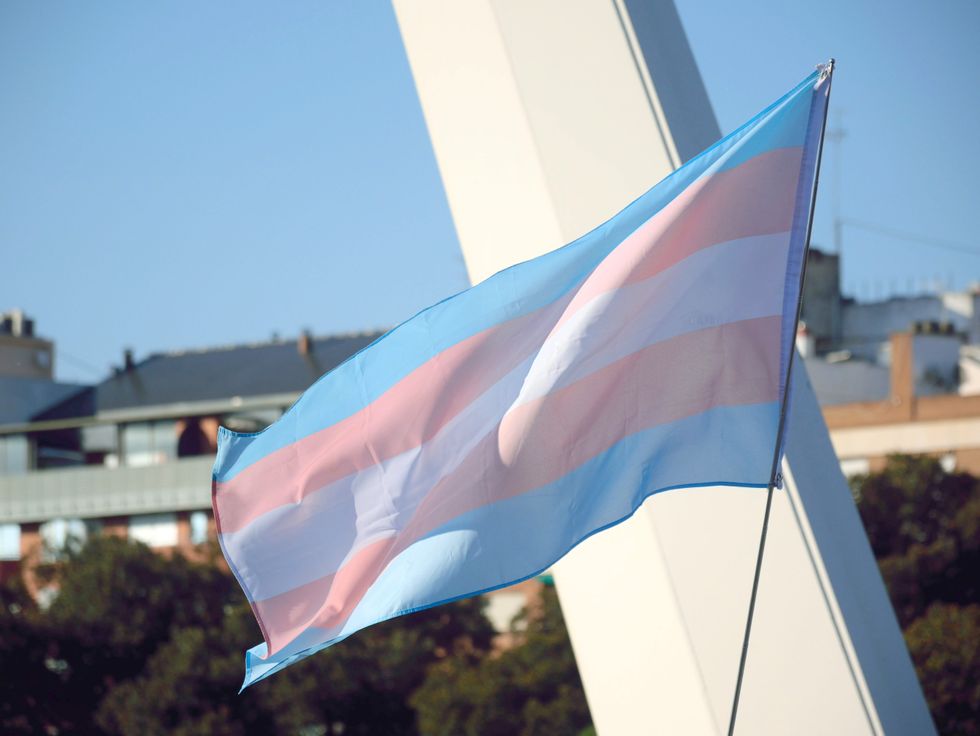Dimitris Kouimtsidis
Guest Reporter
NHS proposals in the East Midlands have sparked fury over plans to give trans men, lesbians and single women immediate access to IVF treatment, while requiring heterosexual couples to prove two years of infertility first.
The draft policy would automatically assume these groups are unable to conceive naturally, granting them instant eligibility for NHS-funded fertility treatment, estimated to cost £5,000 per cycle.
Family campaigners have condemned the proposals as "grossly discriminatory" towards traditional families.
The changes would affect a large region including Derbyshire, Nottinghamshire, Northamptonshire, Leicestershire and Lincolnshire, with the policy potentially coming into force next year following public consultation.

Under the proposals, eligible candidates must meet specific criteria, including having a body mass index between 19 and 30, being non-smokers, and being under 43 years old.
Those with partners who have children from previous relationships would be excluded from NHS-funded treatment.
The policy has particularly upset heterosexual couples where one partner already has biological children, as no changes are planned to current rules barring them from treatment.
Sarah Curtiss, who campaigns for NHS-funded IVF for infertile stepmothers, said: "It seems they want to make [their policy] equal for everyone apart from those who have children from a previous relationship."
The proposals would see trans men, lesbians, and single women bypass the traditional two-year waiting period required for heterosexual couples to prove infertility.
LATEST DEVELOPMENTS:

Critics have strongly condemned the proposals, with senior Tory MP Sir John Hayes, whose Lincolnshire constituency would be affected, calling them "grotesquely unfair, utterly bizarre" and "so nonsensically woke it is off the scale."
Lucy Marsh, from the Family Education Trust, expressed serious concerns about the policy's impact on traditional families.
She said: "At the very least these proposals seem grossly discriminatory towards traditional families."
The plans have highlighted growing tensions over NHS fertility treatment access, with campaigners questioning why the health service appears to be prioritising certain groups over heterosexual couples.
The proposed changes are detailed in a document called 'The Case For Change', which outlines the new eligibility criteria and access requirements.

A spokesman for the East Midlands NHS Integrated Care Boards responded to the criticism, saying: "We are conscious of the strength of feelings around fertility treatments and this is why we are asking people to complete our survey and share their views, which will feed into the final policy."
The public consultation period will run for eight weeks, ending in January.
The NHS spokesperson emphasised that while proposals have been put forward, no final decisions have been made.
Members of the public across the affected East Midlands regions are being encouraged to participate in the consultation process.
If approved, the new fertility treatment policy could be implemented as early as next year, marking a significant change in how IVF access is determined across the region.
Find Out More...
The draft policy would automatically assume these groups are unable to conceive naturally, granting them instant eligibility for NHS-funded fertility treatment, estimated to cost £5,000 per cycle.
Family campaigners have condemned the proposals as "grossly discriminatory" towards traditional families.
The changes would affect a large region including Derbyshire, Nottinghamshire, Northamptonshire, Leicestershire and Lincolnshire, with the policy potentially coming into force next year following public consultation.

Under the proposals, eligible candidates must meet specific criteria, including having a body mass index between 19 and 30, being non-smokers, and being under 43 years old.
Those with partners who have children from previous relationships would be excluded from NHS-funded treatment.
The policy has particularly upset heterosexual couples where one partner already has biological children, as no changes are planned to current rules barring them from treatment.
Sarah Curtiss, who campaigns for NHS-funded IVF for infertile stepmothers, said: "It seems they want to make [their policy] equal for everyone apart from those who have children from a previous relationship."
The proposals would see trans men, lesbians, and single women bypass the traditional two-year waiting period required for heterosexual couples to prove infertility.
LATEST DEVELOPMENTS:
- Breastfeeding charity trustee QUITS over policy allowing trans women to attend support groups
- Mum of trans teenager sues regulator for approving private trans clinic for children despite NHS crackdown
- NHS staff told it is unacceptable to refuse sharing toilet with trans colleagues

Critics have strongly condemned the proposals, with senior Tory MP Sir John Hayes, whose Lincolnshire constituency would be affected, calling them "grotesquely unfair, utterly bizarre" and "so nonsensically woke it is off the scale."
Lucy Marsh, from the Family Education Trust, expressed serious concerns about the policy's impact on traditional families.
She said: "At the very least these proposals seem grossly discriminatory towards traditional families."
The plans have highlighted growing tensions over NHS fertility treatment access, with campaigners questioning why the health service appears to be prioritising certain groups over heterosexual couples.
The proposed changes are detailed in a document called 'The Case For Change', which outlines the new eligibility criteria and access requirements.

A spokesman for the East Midlands NHS Integrated Care Boards responded to the criticism, saying: "We are conscious of the strength of feelings around fertility treatments and this is why we are asking people to complete our survey and share their views, which will feed into the final policy."
The public consultation period will run for eight weeks, ending in January.
The NHS spokesperson emphasised that while proposals have been put forward, no final decisions have been made.
Members of the public across the affected East Midlands regions are being encouraged to participate in the consultation process.
If approved, the new fertility treatment policy could be implemented as early as next year, marking a significant change in how IVF access is determined across the region.
Find Out More...
